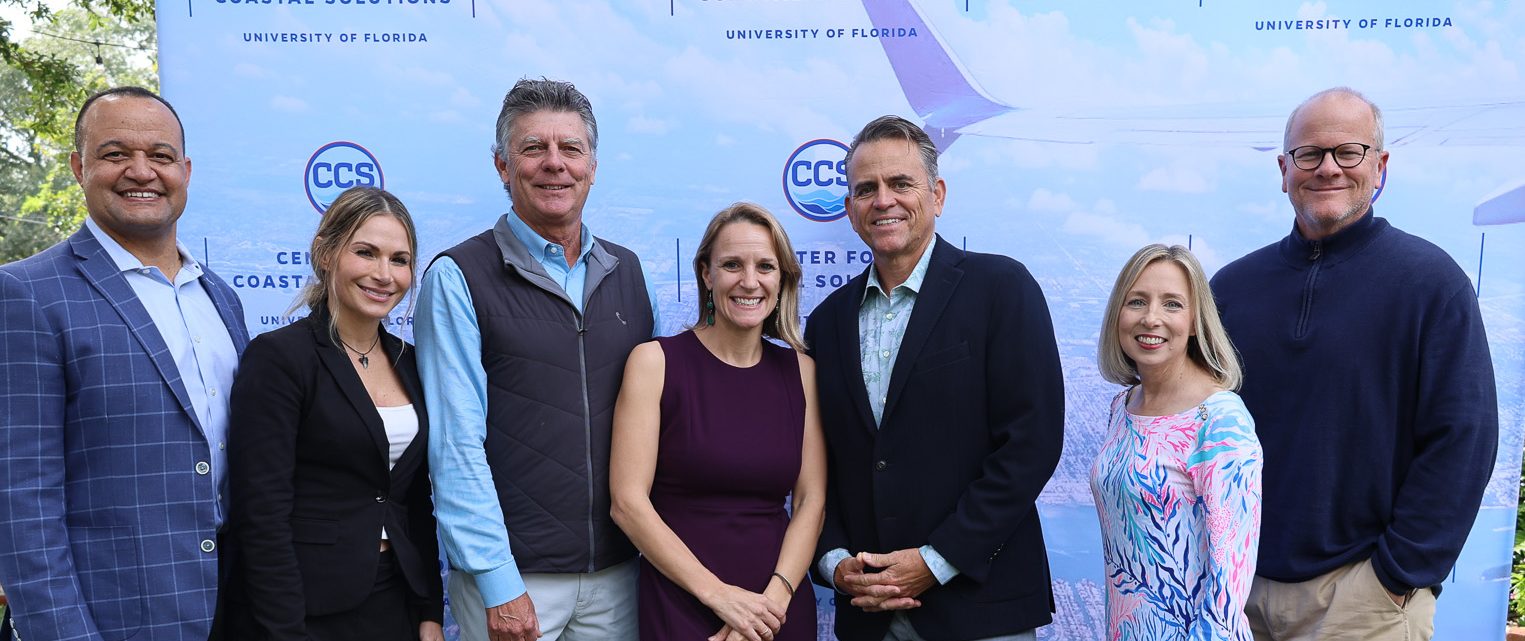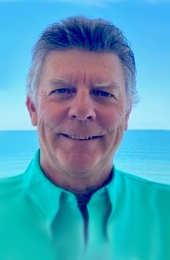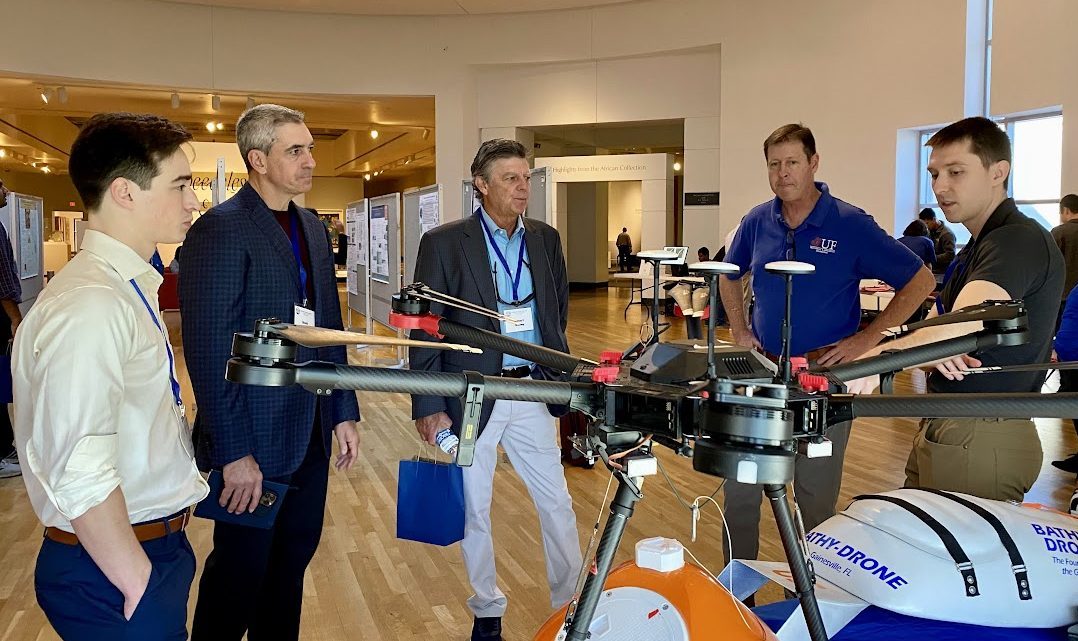Retired engineering executive Bob Bailey is stepping into the role of chair of the CCS advisory board to help guide the center into its next chapter as a research and technology innovator. Bob, who joined the board in 2021, has played a key role in identifying funding opportunities for the center to advance coastal research and deliver actionable solutions for building coastal resilience in Florida coastal areas.
Bob is taking over as chair at the request of Scott Pressly, who will step down as founding chair following three years of service, during which he helped put the center on a firmer financial footing and develop a suite of advanced coastal modeling, AI tools and nature-based approaches to address Florida’s coastal hazards. A warm welcome to Bob, and our tremendous gratitude to Scott for his unwavering support and guidance.

Can you tell us about yourself?
 First of all, I am honored to chair the advisory board for CCS and help build on the vision and outstanding leadership of our inaugural chair, Scott Pressly and director Christine Angelini. I look forward to continuing to work with Scott on the board.
First of all, I am honored to chair the advisory board for CCS and help build on the vision and outstanding leadership of our inaugural chair, Scott Pressly and director Christine Angelini. I look forward to continuing to work with Scott on the board.
I am currently president of the Bailey Strategy Group, LLC through which I provide consulting and strategic planning advisory services to engineering and technology companies. I am a registered professional civil engineer in Florida and spent 42 years in the consulting engineering business, primarily with CH2M, a large consulting, design and construction firm. I was fortunate to serve as president of the CH2M global water business leading a great team of people working on the largest and most challenging water projects around the globe. Our portfolio accounted for over $1 billion US dollars annually with projects throughout the US, the UK, Australia and New Zealand, the Middle East and South America. I also served multiple terms on the CH2M board of directors. Throughout my career, I learned that finding the right solution to a challenging problem always involved innovation, applying the right technology, getting the support of key stakeholders and assembling the best team for the job. I hope to bring the value of that experience to CCS.
My wife, Luann and I live in Winter Park, but spend a lot of time on the coast in New Smyrna Beach. We have always loved the beaches and estuaries along the coast of Florida and have fished quite a bit in Mosquito Lagoon. We are fortunate that our son, his wife (both are Gator grads) and our grandchildren live nearby so we get to watch them grow and learn to experience the coast as well.
What makes the mission of CCS meaningful to you?
There is a lot to like about the CCS mission, but probably the most meaningful element is our objective of accelerating development of implementable solutions to coastal challenges. I think UF and CCS are in a unique position to help decision makers get solutions identified faster and give them the scientific foundation to move ahead with implementation faster than has been typical. I believe this accelerated pace of solution development is critical to the health of our coastal environments.
What are some of the key priorities for the CCS advisory board this year?
We are currently working with Christine and the advisory board to formalize our priorities for the next one to three years, but a few that stand out include:
1. Focus the CCS work around three to four core areas of emphasis where the center can differentiate itself and really make an impact. These are consistent with the CCS strategic plan.
2. Expand the geographical diversity and representation of the advisory board in Florida and beyond as appropriate. For example, we need to add some advisors in South Florida and the Jacksonville area.
3. Help the CCS team communicate the great work of the center to key stakeholders around the state.

How will the advisory board help accelerate CCS’ strategic initiatives?
We have an extraordinary group of people on the advisory board with diverse and directly applicable experiences that can help the CCS team grow and develop. We hope to leverage our board members to help the center develop strategies to acquire key projects and research grants, provide advice on how to build teams to deliver those projects and help recognize the amazing work the associated faculty and researchers are doing.
What’s exciting you about the outlook for the CCS’ growth and development over the next couple of years? What opportunities do you see on the horizon?
Since its inception just three years ago, the CCS team has done some incredible research. All of us on the advisory board believe the center is well positioned to take the next step in developing and accelerating groundbreaking solutions to coastal challenges by blending the vision and energy of the center’s leadership, the talent of the staff and faculty associated with the center and the data integration/artificial intelligence tools uniquely available at UF. We look forward to helping CCS become the pre-eminent, “go-to” center for implementable solutions to the most pressing and complex coastal challenges.